Cleaning with citric acid: 7 ways to harness the power of this natural cleaning agent
Love cleaning with lemons, but don't love all the hassle of squeezing and cutting them? You need to try citric acid
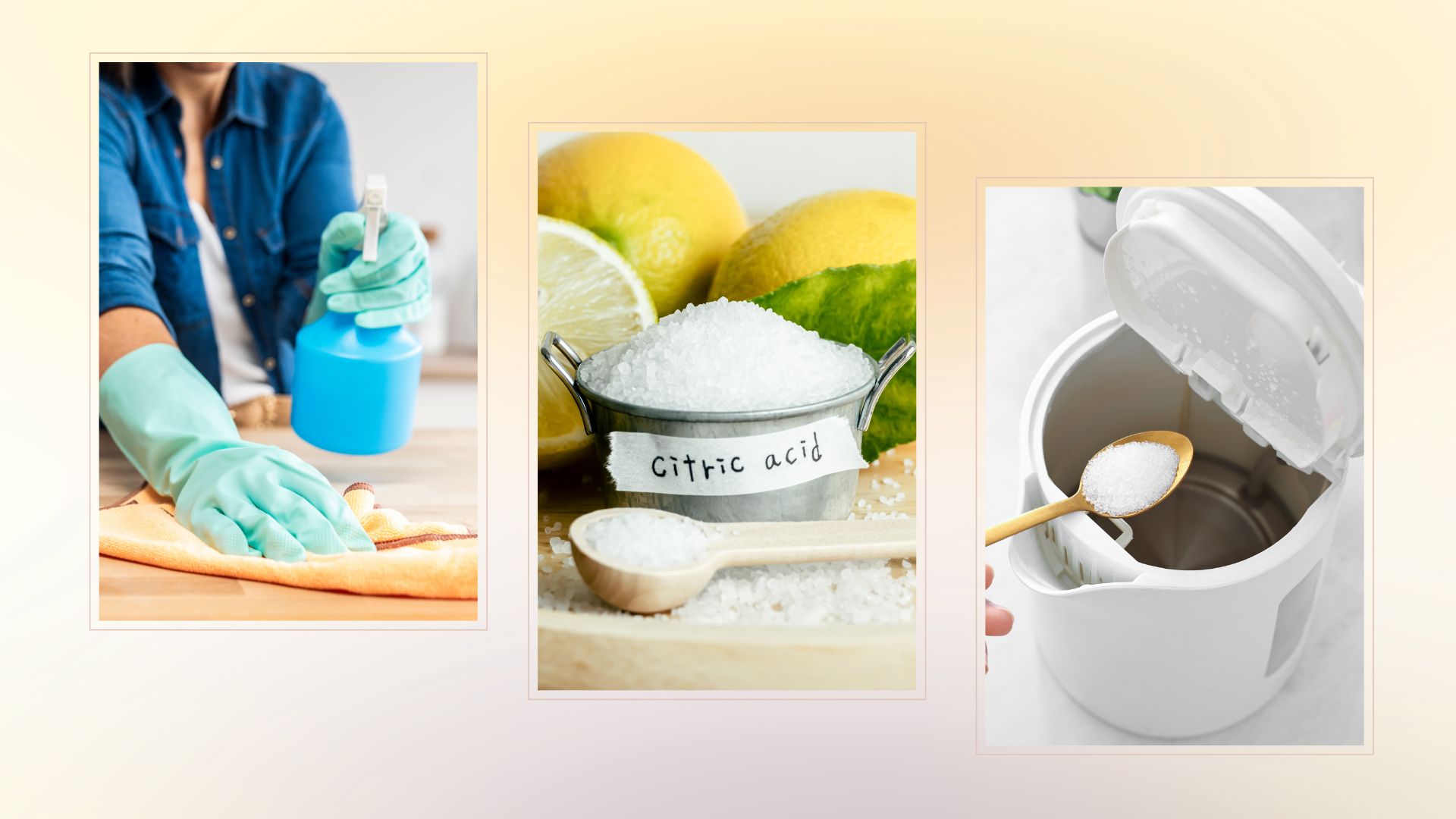

Keeping your home clean and tidy can feel like an ongoing challenge, which is why it's such a great feeling when you find something that helps make it easier. Our latest discovery is citric acid, the versatile and low-effort alternative to cleaning with lemons.
Now, cleaning with lemons has multiple advantages and can help tackle so many tasks around the house. However, the hassle of cutting up and squeezing multiple lemons to clean your home is enough to put off even the most motivated cleaner.
So if you want to keep your daily cleaning habits as low-maintenance as possible, citric acid might just be the tool you'll be looking for.
Cleaning with citric acid: 7 expert recommended methods
Whether you're looking for new expert cleaning hacks or ways to streamline your deep cleaning routine, we'd like to introduce you to citric acid. "Citric acid is a brilliant, natural cleaner that’s perfect for tackling limescale, soap scum, and mineral deposits," explains Catherine Green, sustainable cleaning expert at Smol.
"Gentle yet powerful, citric acid is a great planet-friendly swap for many commercial descalers." So if you want to clean your home while being mindful of the planet, here are several ways of using citric acid to clean.

Having worked for the cleaning brand Smol since its creation, Catherine has tested each and every product before its release. She is also involved with the production team's process and provides feedback for the development of the company's products.
1. Surfaces
You don't need to know how to clean your house like a professional when it comes to countertops and other household surfaces. But having an effective product on your side will make cleaning up messes a whole lot easier.
"Diluted citric acid makes a great cleaner for spritzing onto laminate, plastic, and stainless-steel surfaces," says Sarah Dempsey, cleaning expert at MyJobQuote. Who goes on to advise: "Mix 2 ½ tablespoons of the acid with 500ml of warm water in an empty spray bottle before shaking to combine it."
Sign up to our free daily email for the latest royal and entertainment news, interesting opinion, expert advice on styling and beauty trends, and no-nonsense guides to the health and wellness questions you want answered.

With over twenty-five years in the cleaning industry, Sarah is truly an expert in what she does. Specialising in domestic cleaning and laundry, Sarah also works closely with MyJobQuote to provide expertise in cleaning to homeowners, tradespeople and media outlets.
2. Kettles
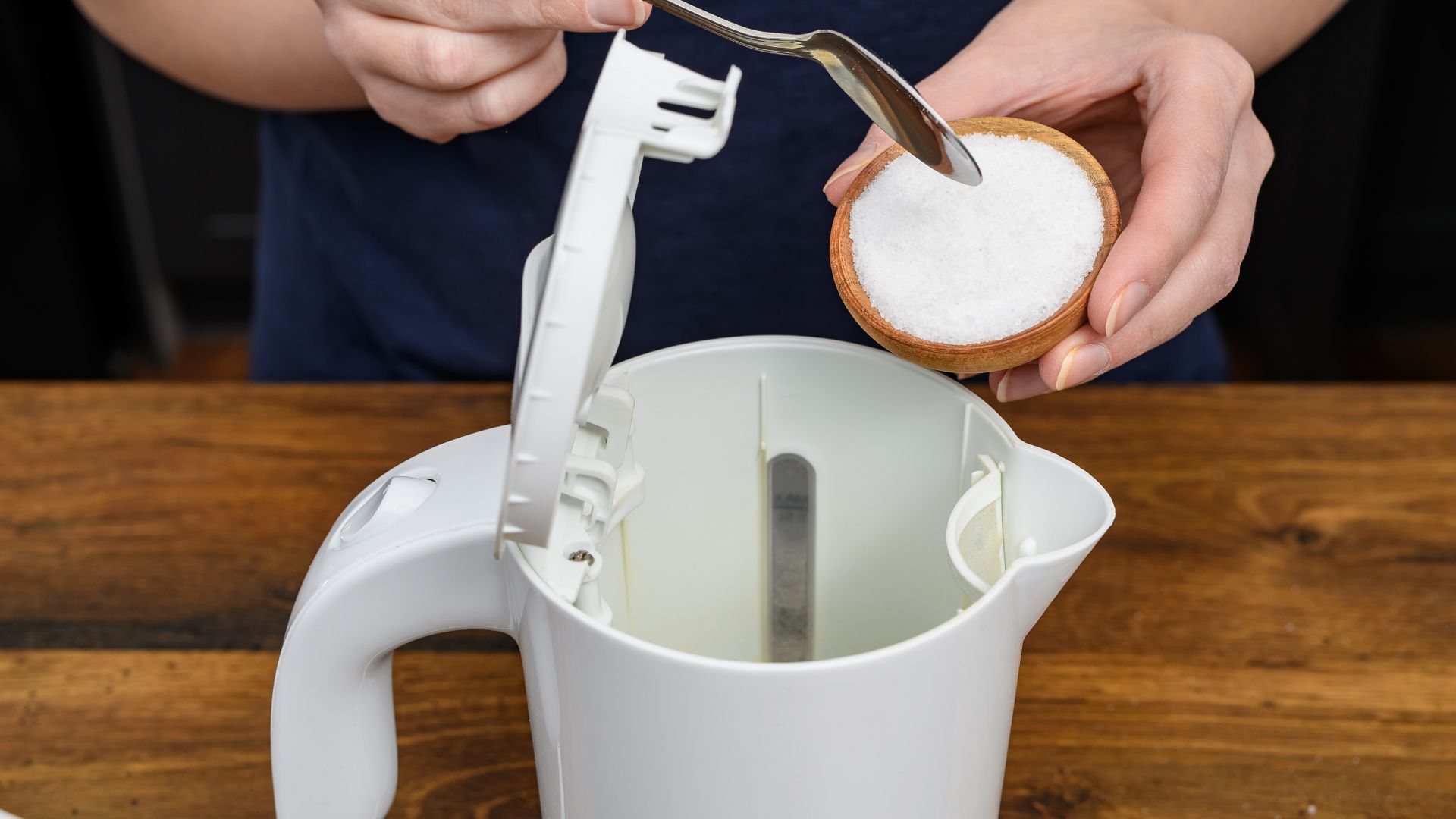
Should you already clean with baking soda and vinegar, you might already have a pretty spotless kettle. However, citric acid is a fantastic alternative and will make quick work of the limescale built up in the appliance.
"Like vinegar, citric acid can come in handy for descaling your kettle. Fill the kettle to half capacity and switch it on to heat it to a lukewarm temperature," starts Sarah.
"Unplug the appliance, then carefully add 2 tablespoons of citric acid to the mix and leave it to work for 15-20 minutes. Empty the solution and boil fresh water to remove any traces," she continues.
3. White cottons
From removing yellow stains from pillows to keeping your best sheets pristine, keeping white cottons white can prove tricky
"If your whites are starting to look grey, bedding or clothing, simply combine 3 tablespoons of citric acid with around 4 litres of warm water and leave your items to soak in it overnight before machine-washing the next day," advises Sarah. "This is also a good method for pre-treating stains."
4. Mirrors and windows
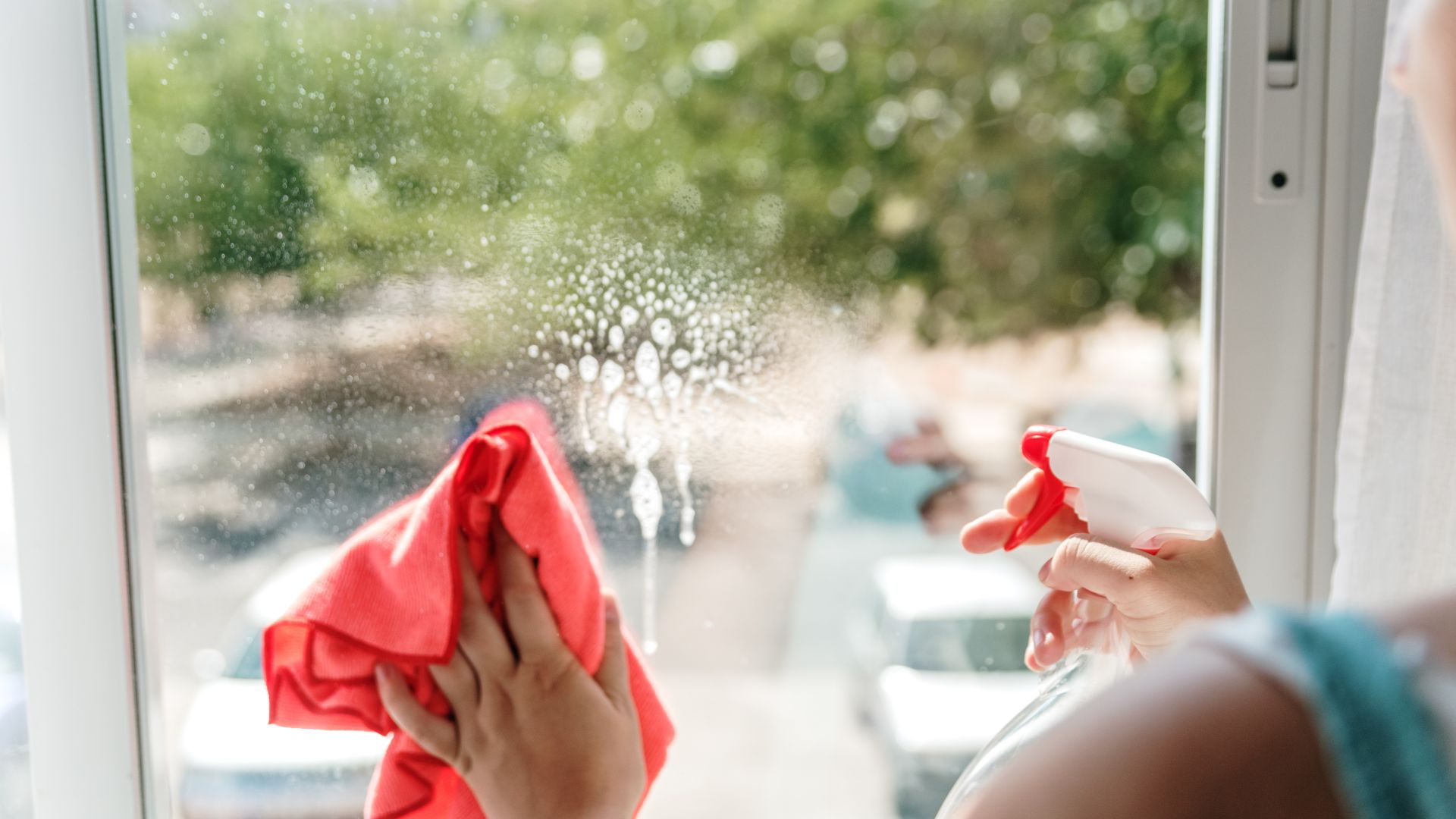
When cleaning windows and mirrors, many experts will recommend cleaning with vinegar; however, citric acid can be just as effective, if not more.
"Make up the same solution as you would for cleaning surfaces and spritz it over your mirrors and windows before wiping them clean from top to bottom in a circular motion with a microfibre cleaning cloth," suggests Sarah.
5. Dishwashers
Whether or not you've been cleaning your dishwasher as often as you should, it can get pretty grimy fast. So having a powerful cleaner in your arsenal is never a bad thing.
"Running a cycle with citric acid (and no detergent) can help to remove odours and build-up in dishwashers, keeping them fresh and clean. Additionally, if you have any cloudy glassware, you may want to put this in your dishwasher before starting the cycle, as the citric acid will restore it to its former glory," explains Sarah.
6. Washing machine
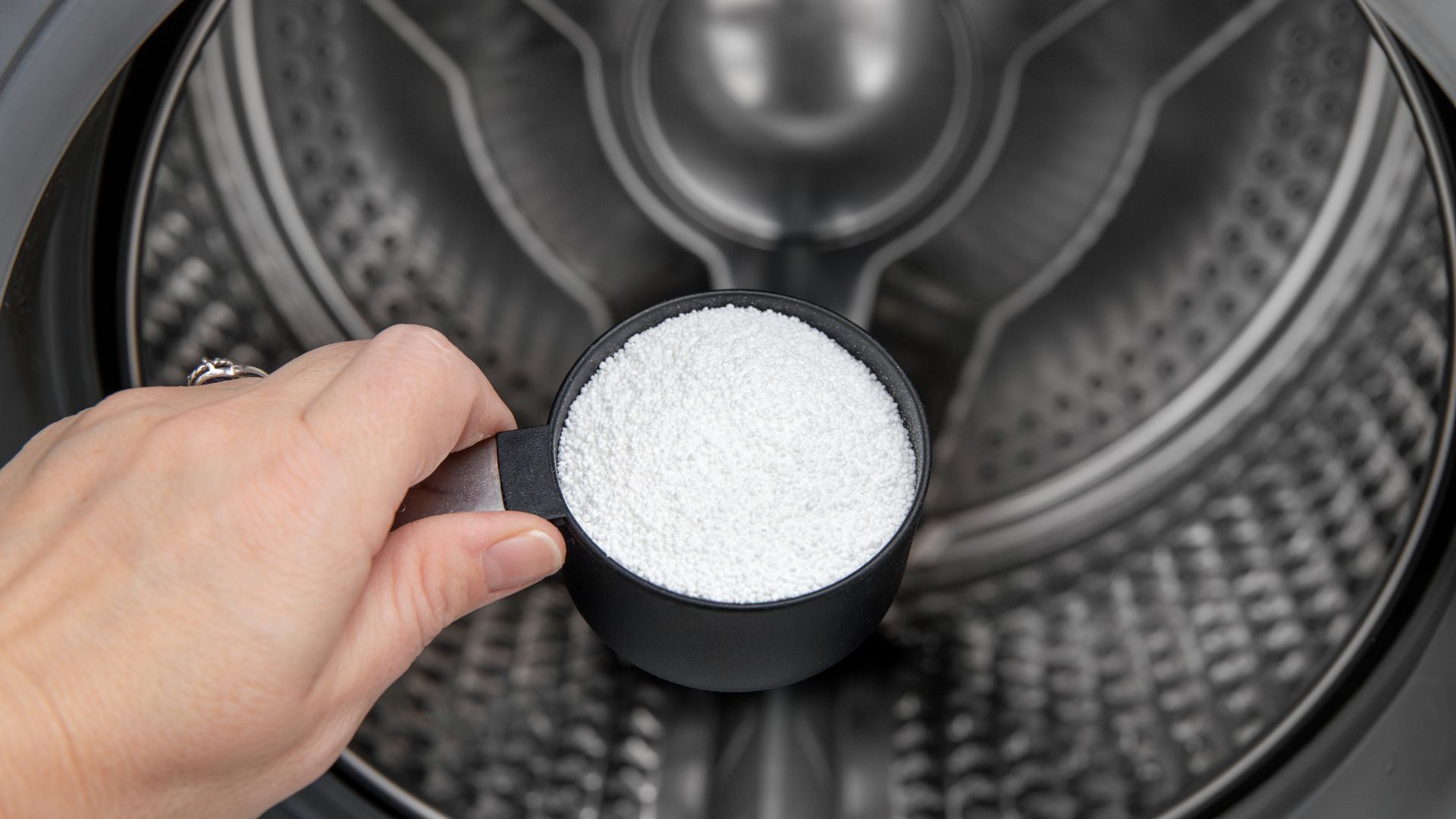
Knowing how to clean a washing machine is incredibly important, especially knowing how to clean the rubber seal inside the drum. Washing machines are like magnets for damp, mould and bad odours, so keeping them consistently clean is key.
"For your washing machine, pop two tablespoons directly into the drum and run a cycle to dissolve any built-up limescale or detergent residue. N.B. Do not run a hot cycle above 40°C otherwise calcium citrate can form and block the pipes," begins Catherine.
"And if your washing machine cycle gives you a pause function mid wash - use it after about 15 minutes and let the citric acid solution sit for about 30 minutes in the machine. Then start the program again," she finishes.
Now the next time you're wondering why your washing machine smells, you've got a quick and effective fix.
7. Towels
Should your best bath towels be looking a little sad, don't throw them away just yet. You can use citric acid not only to clean them but also to fluff them back up.
"Pop on your rubber gloves and add ¼ cup of citric acid to half a bath of hot water. Stir until dissolved. Put your towels in the solution and let them soak for 15 minutes, then drain the bath. Run cold water into the bath to rinse the towels, ring out towels and wash and dry them as usual," instructs Catherine.
"When you’re line drying your towels - bring them in whilst still slightly damp. Give them a good old shake, and this will help to fluff out the fibres. Leave them to dry that last little bit inside, then put them away once fully dry," she continues.
FAQs
What not to clean with citric acid?
In the same way, there are some things you cannot clean with baking soda; citric acid has its limits around your home.
"While citric acid is fantastic for removing limescale and buildup, it’s still an acid, so there are a few things to steer clear of," says Catherine. "Avoid using it on natural stone surfaces like marble, granite, or limestone, as it can etch or dull their finish. Similarly, don’t use it on brass, copper, or aluminium, since acid can react with these metals and cause discolouration or corrosion."
She also warns against using it on wooden surfaces and floors as the acid can damage the protective seal or finish.
"Finally, be cautious with fabrics or upholstery as citric acid may bleach or weaken some materials. If in doubt, always spot-test first somewhere out of sight and rinse thoroughly. It’s a powerful cleaner, but best reserved for non-porous, acid-safe surfaces like glass, ceramic, stainless steel, and plastic," adds Catherine.
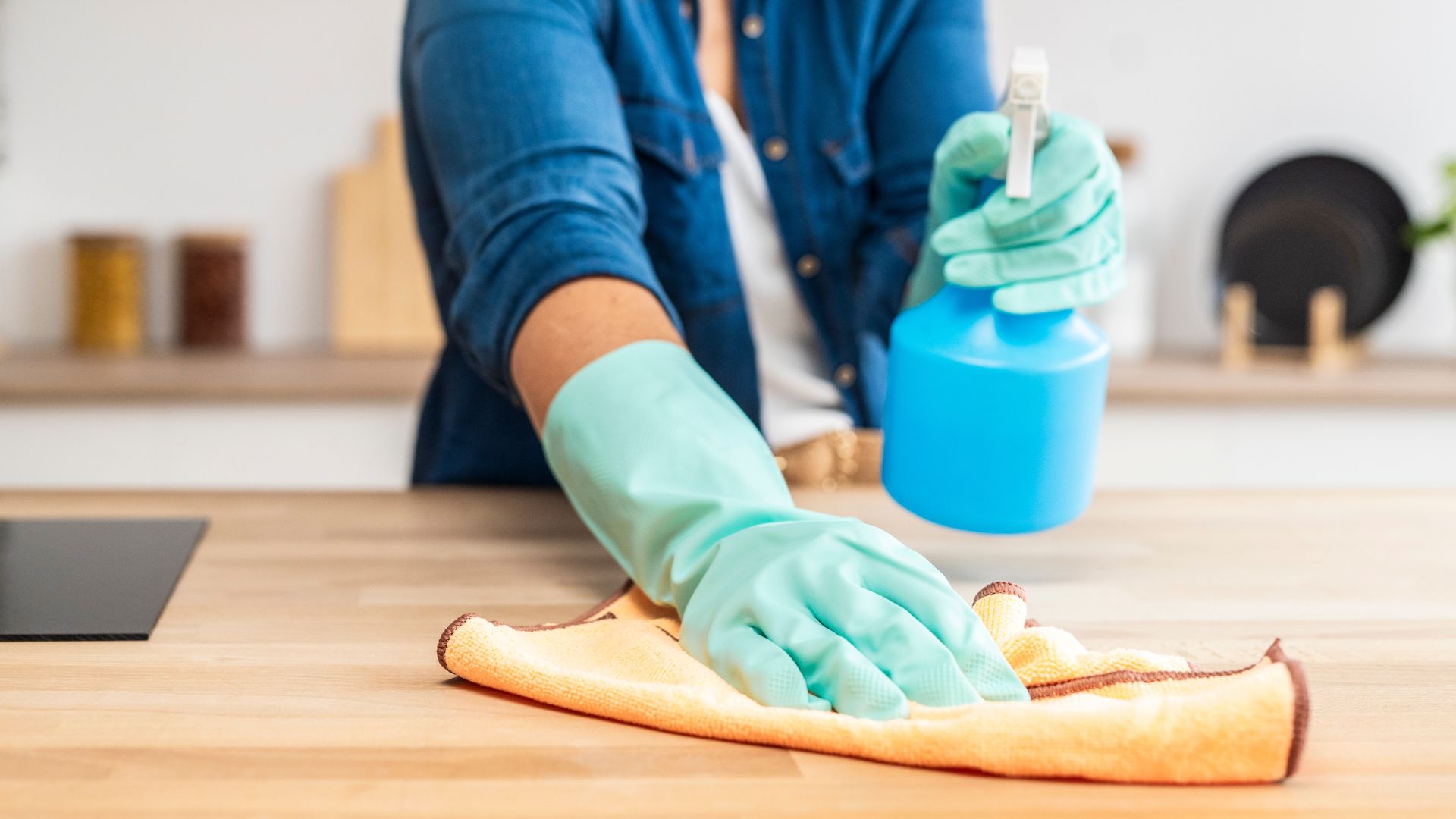
Can you mix citric acid and white vinegar?
You should always be cautious when mixing cleaning agents, especially when they're natural and acidic. However, vinegar and citric acid are a combination that will have your home sparkling.
"Citric acid can be mixed with white vinegar to create a safe and powerful natural cleaning agent. Citric acid is great for removing rust, stubborn soap scum and general grime, while vinegar is excellent at dissolving hard water stains, mineral deposits, and grease," explains Sarah.
By pairing the two together, you can enhance each one's individual cleaning powers, which can allow you to tackle a wider variety of household messes.
"It is, however, always a good idea to test on a small area first to ensure that your solution won’t discolour or damage materials," warns Sarah.
Can I use citric acid to clean my toilet?
Whilst your toilet is one of the things you can successfully clean with denture tablets or vinegar, citric acid is a much better choice.
"This is a good option if you don’t like the strong smell of vinegar; in fact, citric acid has quite a pleasant fresh smell, so it is commonly used to clean toilets," explains Catherine.
"If you want to use citric acid to clean up your toilet, first flush the toilet so the ceramic surface of the bowl is damp. Then sprinkle a few tablespoons of citric acid into the toilet - making sure some of it sticks everywhere up the sides of the bowl," she starts.
"Next, add a few tablespoons of bicarbonate of soda to the bowl and (including again up the sides of the bowl). You should see a pretty immediate reaction between the two with some foaming and fizzing - it’s very good at helping to loosen urine scale. Leave it for half an hour before wiping it down with a toilet brush or cloth, then flush to finish," finishes Catherine.
Although you may be a citric acid convert, don't get rid of the lemons just yet; they're fantastic at breaking down grease and grime in your microwave. Simply add slices into a microwaveable bowl, pop it inside and heat the bowl for around 5 minutes. Then simply scrub the dirt away, and be sure to be careful when removing the hot bowl!

Emily joined woman&home as a staff writer after finishing her MA in Magazine Journalism from City University in 2023. After writing various health and news content, she now specialises in lifestyle, covering unique cleaning hacks, gardening how-tos, and everything to help your houseplants thrive.
You must confirm your public display name before commenting
Please logout and then login again, you will then be prompted to enter your display name.
